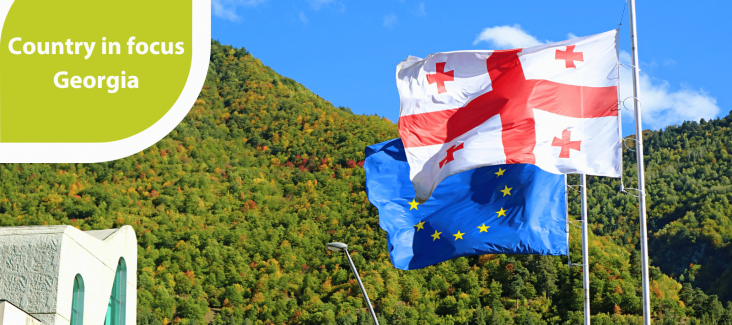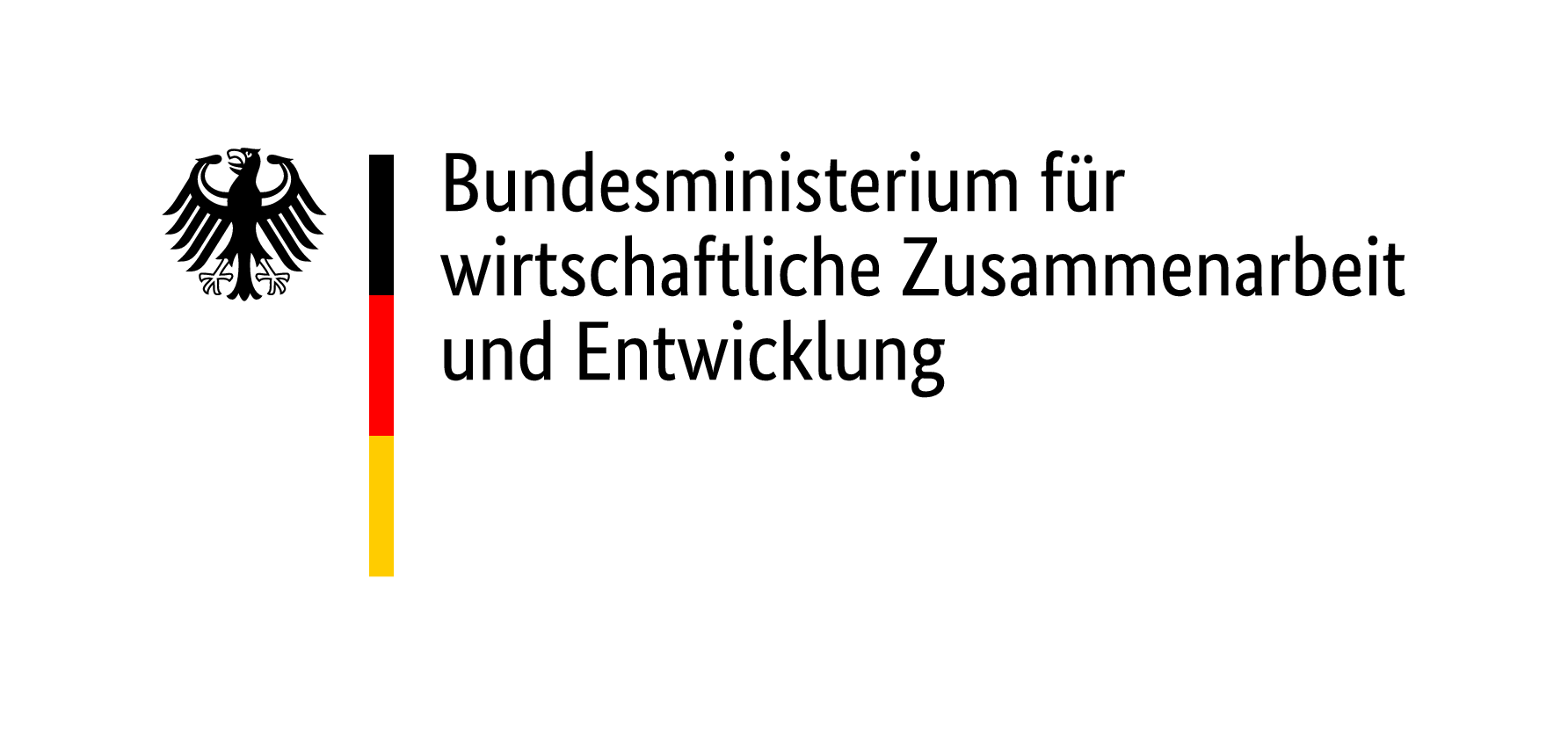What is the political culture in Georgia?
In Georgia, we have a parliamentary system that we transitioned to based on the renewed constitution. Currently, we still have an elected president who has one more year to serve, but in one year, the government will appoint the new president.
The political landscape at the moment is highly polarised, which is probably not very new for Eastern Europe. The deepening polarisation among political elites started in 2020 after the election when the opposition party boycotted the results of the elections. Since then, Georgia has been going through an unending crisis on the political level.
Also watch our webinar dedicated to Georgia, Ukraine and the Black Sea regions "Youth participation and the future of democratic activism"
The EU was one of the leading figures mediating this conflict between the ruling party and the opposition. In the short term, it was a success, but in the long run, we see that polarisation is not going anywhere. Despite the fact that the opposition party got into the Parliament of Georgia in 2021, the work of the Parliament at this stage is not very effective. No matter how good or important the proposed initiative would be, if it comes from the opposition side, the initiative will not succeed. Even the government itself assesses that this is the worst Parliament Georgia has ever had.
The media is also involved in polarisation. Georgia does have independent media, but TV channels mostly back the current ruling party’s politics and are owned by the ruling party representatives. There are a couple of online newspapers and TV channels that try to be more balanced and moderate. However, Georgian society, especially the older generation, mostly watches TV, so the media has a large effect on the population.
How did the Russian full-scale invasion of Ukraine affect the political situation in Georgia?
It is crucial to note that before Russia started the full-scale war in Ukraine in 2022, the topics of political polarisation in Georgia were mostly domestic. After the beginning of the full-scale invasion of Ukraine, the scope of polarising topics was broadened, and now there is no consensus regarding foreign policy either.
The issue of peace had become a major topic of polarisation. In their official statements, the government is still supporting European integration, and the ruling party has never said directly that they are willing to have harmony with Russia. At the same time, they claim that they have a pragmatic policy towards Georgian relations with Russia. The ruling party is trying to convince the people that they are the ones maintaining peace in Georgia. Neither of these two statements is entirely true.
When we speak about peace with Russia and say we do not have war with Russia at the moment, we need to remember about the creeping occupation of Georgia. For example, three weeks ago (the interview was recorded on 5 December 2023 – ed.) a Georgian citizen was killed by Russian so-called “peacekeepers” because they one-sidedly decided to move the so-called border line of the occupied regions. Russian troops in no way indicated that it was prohibited to be on certain territory, so when a man entered a church, he was killed. In 2018, another person was kidnapped, tortured and killed because Russian occupiers found out he was fighting in the 2008 war. These are just two examples, but now it is something very common to hear that every two months in Georgia Russians kidnapped or killed someone.
Additionally, 62,000 Russians received the status of an immigrant already. The majority of them are not asylum seekers; they just live one year in Georgia, leave for one day and come back, which is allowed by our laws. It is scary for a country as small as Georgia because these people most often are isolated, dragging their business to Georgia and employing only Russian citizens in Georgia. They are behaving as if Georgia is their land, not as if they were guests here. And we, in Georgia, are allowing this, unfortunately.
One last thing to mention, the rhetoric of the ruling party politicians changed towards the Ukrainian government and towards the European strategic partners since the beginning of the 2022 stage of the Russian war in Ukraine. The government now became more critical of European partners, especially in the question of giving Ukraine and Moldova the status of the EU candidate country. On the one hand, it is true that reforms in Georgia were in many cases much more successful. On the other hand, there still are many problems in the judiciary system despite the fact that there were four rounds of reforms.
All this is not a pragmatic policy, but it may be the policy of the government that is scared of Russia.
What is the current situation for Georgian civil society?
Civil society is quite strong and mature in comparison to the political elite. These are the people who are working hard in many sectors and are trying to support reforms to fulfil the EU accession recommendations. Civil society currently has a big pressure on it because since March 2023 we have been fighting the introduction of a Russian-style “foreign agent” law that the government wanted to adopt. The law was dropped after mass protests on the streets. It was not only civil society organisations (SCOs) involved in protesting the law but also academia and young people, pretty much the same people who are supporting Ukraine now and who were the driving force behind the beginning of the EU accession process in Georgia. Protests are not the only instrument of influence of SCOs on the government, there are, of course, formal talks, working groups and other capacities.
However, since March 2023 it has become tricky to be engaged in any form. In Georgia language “agent” means something more similar to a spy. So, the law that the government wanted to implement was the issue of trust and respect. But it was not only about the word. The content was compromising scholars and civil society organisations, claiming that the organisations and individuals that are getting funds from foreign institutions are not transparent about it. In reality, the regulation of such funding is basically already done.
It is impossible to run any project in Georgia if it is not registered in the Justice Hall and if it is not approved by the Ministry of Finance. Additionally, the reporting for received funding usually demands transparency, and everyone working in a SCO knows how complex it is.
After COVID-19, Georgia received big social funding from the EU. When the government of Georgia was allocating this social aid, it was in no way communicated that these funds are received from the EU Member States. It was presented as if the government was providing this help. I believe we should be equal when it comes to reporting and transparently communicating about the funds.
Can we talk about the direct and participatory democracy in Georgia?
If we talk about direct democracy, there are 2 types of tools available. The top-down tool is the referendum, which is only consultative and is not actually used in Georgia. Another instrument is the citizens‘ initiative tool with which citizens can propose draft laws that the government has to discuss (According to the Direct Democracy Navigator Typology which Democracy International uses, this tool would be an agenda-setting initiative which allows to propose a law draft and is not binding. Another available tool is the citizens' initiative which does not allow the adoption of law, but allows a binding vote on the issue of particular nationwide importance. For more information, visit Direct Democracy Navigator).
On the local decentralised level, there are more tools accessible to the citizens in different cities and municipalities. People can initiate local projects or participate in city assemblies. There are ten non-occupied regions of Georgia and there are a lot of possibilities, depending on how the budget is allocated and distributed in the area. There are also many councils such as youth councils. There are many tools that cannot guarantee, but support the process of citizens’ participation.
In the current trend towards democratic backsliding, do you think the people of Georgia still trust democracy?
In our case, trust in democracy is very much linked with the EU integration process. Of course, countries can become democracies in many different ways, but especially in the geopolitical situation the Black Sea region finds itself in, the EU is an important factor in the democratisation process.
Overall, society is well aware of the benefits of EU accession. 84% of the population supports EU integration, and almost 80% support joining NATO. This shows that Georgians want to live in a democratic system. At the same time, part of society is not against economic relations with Russia. Partly, this can be explained by the fact that there is a dependency and the rhetoric of the government. Partly the problem is that the trade agreement with the EU is a complex and long-term process, and with Russia, everything is very simple.
Overall, surely democratic backsliding and Euroscepticism are different in the contexts of the EU and Georgia. In the case of the latter, I believe it is artificial.
What do you think is currently the biggest threat to Georgian democracy?
Georgia has a positive recommendation from the EU, but we are still waiting for the official decision regarding EU accession. I very much hope it will be positive because otherwise, it can become one of the threats to Georgian democracy. If Georgia does not enter the EU, it will be left with economic dependency on Russia, and Chinese investment is very intensive in Georgia. I believe that Georgian accession to the EU is not only an institutional decision but also a geopolitical decision for the EU to make.
This article was written in connection with the Life as an activist project. Five countries, five democracy activists, five mini-documentaries! The following video is the Life as an activist project documentary.
Mini Documentary - Sasha Zuryan explains the realities and challenges of democracy activism in Georgia and Ukraine, as well as the Black Sea region.


